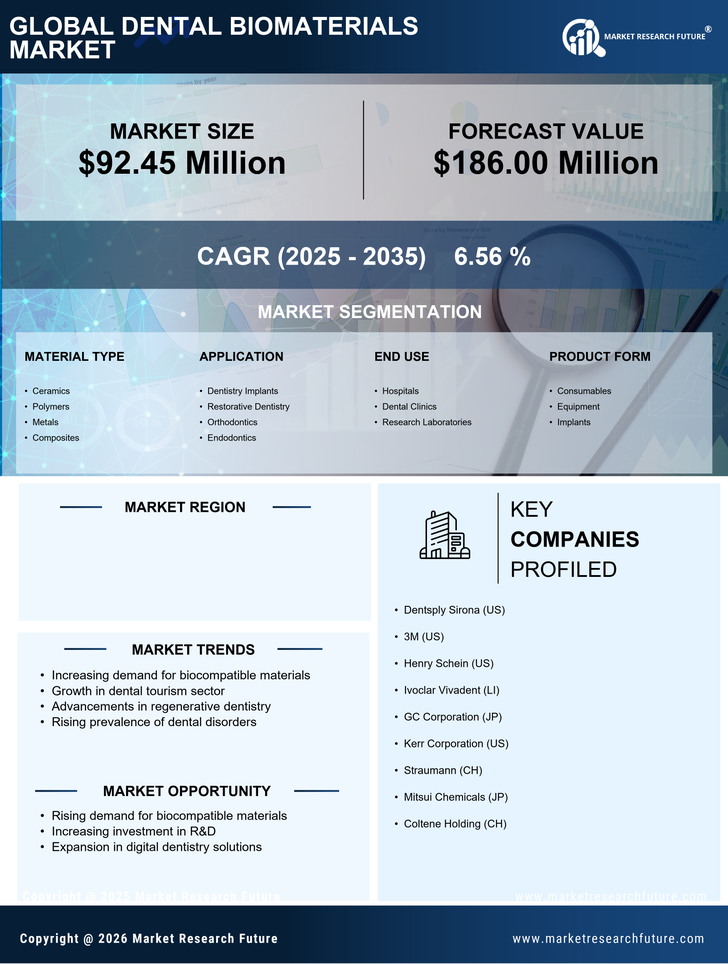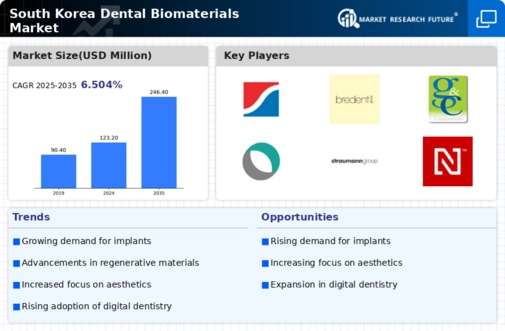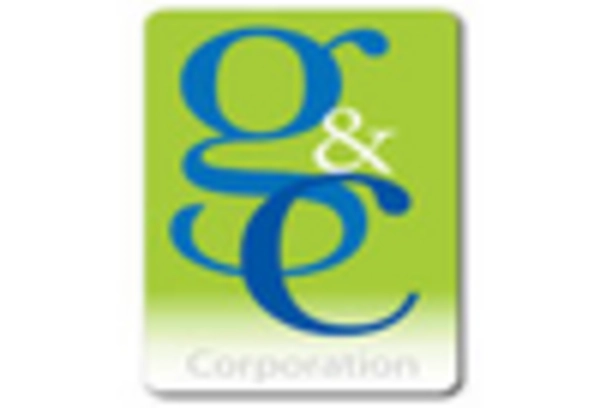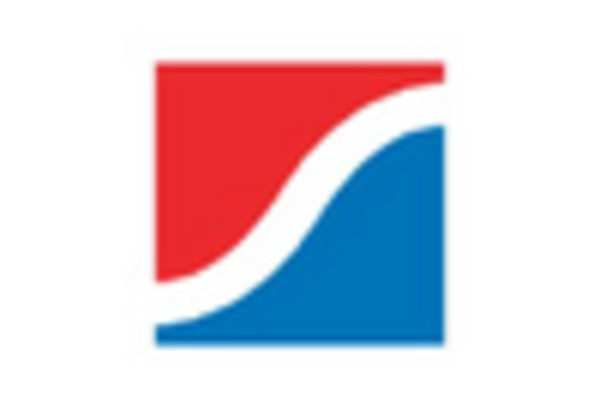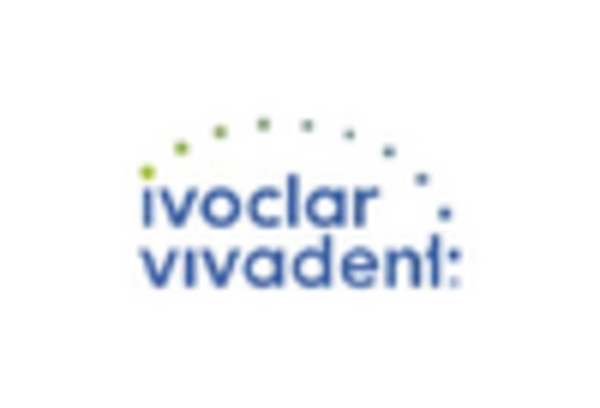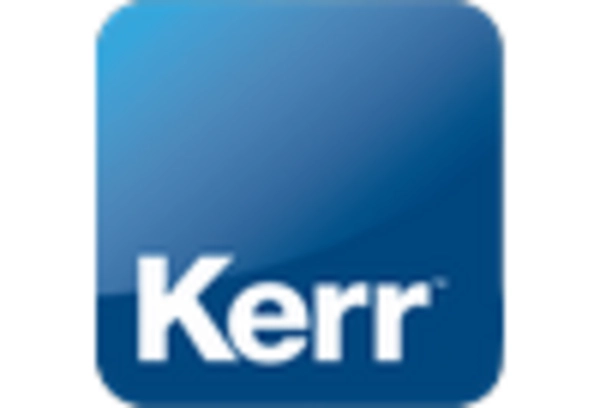Rising Oral Health Awareness
In South Korea, there is a notable increase in awareness regarding oral health, which serves as a significant driver for the dental biomaterials market. Educational campaigns and public health initiatives have contributed to a heightened understanding of the importance of dental hygiene and regular check-ups. This awareness is leading to a surge in preventive dental care, which often involves the use of advanced biomaterials for procedures such as fillings and sealants. Market data indicates that the demand for dental services has increased by approximately 20% over the past five years, reflecting a shift towards proactive dental care. As consumers become more informed about the benefits of using high-quality biomaterials, the dental biomaterials market is expected to expand, driven by the need for effective and durable solutions in restorative dentistry.
Increasing Geriatric Population
The rising geriatric population in South Korea is a pivotal driver for the dental biomaterials market. As individuals age, they often experience dental issues that necessitate restorative procedures, thereby increasing the demand for biomaterials. According to recent statistics, approximately 15% of the South Korean population is aged 65 and older, a figure projected to rise significantly in the coming years. This demographic shift suggests a growing need for dental implants, crowns, and other restorative solutions, which rely heavily on advanced biomaterials. The dental biomaterials market is likely to benefit from this trend, as older adults seek effective solutions to maintain their oral health and improve aesthetics. Furthermore, the increasing awareness of dental care among the elderly population may further stimulate market growth, as they become more proactive in seeking treatments that utilize innovative biomaterials.
Government Initiatives and Funding
Government initiatives and funding play a crucial role in shaping the dental biomaterials market in South Korea. The South Korean government has been actively promoting dental health through various programs aimed at improving access to dental care and encouraging the use of advanced biomaterials. Financial support for research and development in dental technologies has also been a focus, with significant investments allocated to enhance the quality and efficacy of dental materials. This support is likely to foster innovation within the dental biomaterials market, as companies are encouraged to develop new products that meet regulatory standards. Furthermore, public health policies aimed at increasing dental care accessibility may lead to a higher adoption rate of biomaterials in clinical settings, thereby driving market growth in the coming years.
Expanding Cosmetic Dentistry Sector
The expanding cosmetic dentistry sector in South Korea is a notable driver for the dental biomaterials market. As societal standards of beauty evolve, there is a growing demand for aesthetic dental procedures, including veneers, whitening treatments, and orthodontics. This trend is particularly pronounced among younger demographics, who are increasingly seeking cosmetic enhancements to improve their smiles. Market analysis indicates that the cosmetic dentistry segment has grown by approximately 30% over the last few years, reflecting a shift in consumer preferences towards aesthetic solutions. The dental biomaterials market will benefit from this expansion, as innovative materials are developed to meet the aesthetic and functional needs of patients. As cosmetic procedures become more mainstream, the demand for high-quality biomaterials is expected to rise, further propelling market growth.
Technological Innovations in Dentistry
Technological innovations are transforming the landscape of the dental biomaterials market in South Korea. The integration of digital technologies, such as 3D printing and CAD/CAM systems, is enhancing the precision and efficiency of dental procedures. These advancements allow for the creation of customized dental solutions, which are increasingly preferred by both practitioners and patients. For instance, the use of biocompatible materials in 3D printing has shown promising results in producing dental implants and prosthetics that closely mimic natural teeth. As a result, the market is witnessing a shift towards more sophisticated and tailored dental solutions. The dental biomaterials market is likely to experience growth as these technologies become more accessible and affordable, enabling dental professionals to offer enhanced services that meet the evolving needs of patients.
